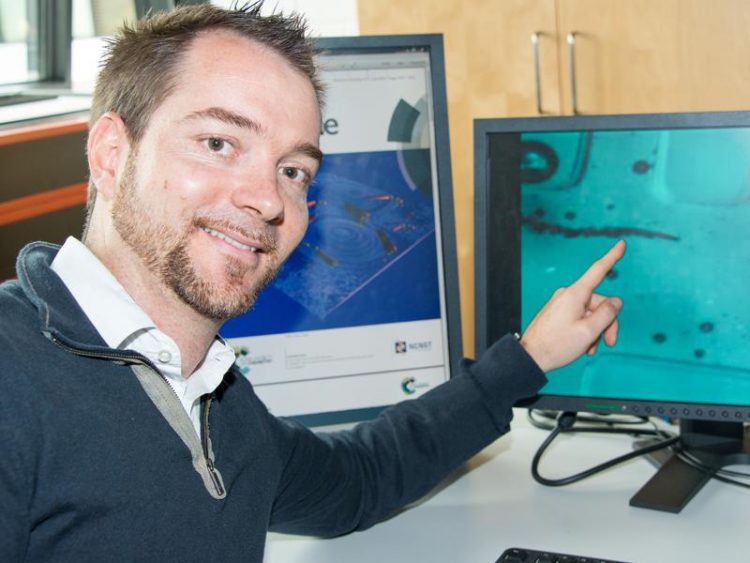Research group leader Samuel Sánchez is one of Spain’s top ten innovators

Dr. Samuel Sánchez at the Max Planck Institute for Intelligent Systems, Stuttgart Photo: Carmen-M. Müller
Samuel Sánchez however is already hard at work in his lab at the Max Planck Institute in Stuttgart to make these visions come true. For his innovative research, the 34 years old chemist has now been named as one of Spain’s top ten innovators under 35 by the Spanish edition of the journal MIT Technology Review.
The jury honored him for his significant contribution in the field of macro- and nanomotors as well as his interdisciplinary research approach. Sánchez combines materials sciences, chemistry and biology in his work to design and develop small-scale motors and their practical use.
Samuel Sánchez obtained his PhD in analytical chemistry at the Universitat Autònoma de Barcelona in 2008. He went on to work in Japan and the Leibniz Institute in Dresden. Since 2013, he heads a Max Planck Research group at the Max Planck Institute for Intelligent Systems in Stuttgart.
The Spanish edition of the journal MIT Technology Review has been giving out this innovation award for four years now. Together with Sánchez, nine other young Spanish scientists under the age of 35 have received this prize this year for their innovative achievements in various fields of technology. The award ceremony will take place in Valencia in November.
Weitere Informationen:
Media Contact
All latest news from the category: Science Education
Newest articles

High-energy-density aqueous battery based on halogen multi-electron transfer
Traditional non-aqueous lithium-ion batteries have a high energy density, but their safety is compromised due to the flammable organic electrolytes they utilize. Aqueous batteries use water as the solvent for…

First-ever combined heart pump and pig kidney transplant
…gives new hope to patient with terminal illness. Surgeons at NYU Langone Health performed the first-ever combined mechanical heart pump and gene-edited pig kidney transplant surgery in a 54-year-old woman…

Biophysics: Testing how well biomarkers work
LMU researchers have developed a method to determine how reliably target proteins can be labeled using super-resolution fluorescence microscopy. Modern microscopy techniques make it possible to examine the inner workings…





















